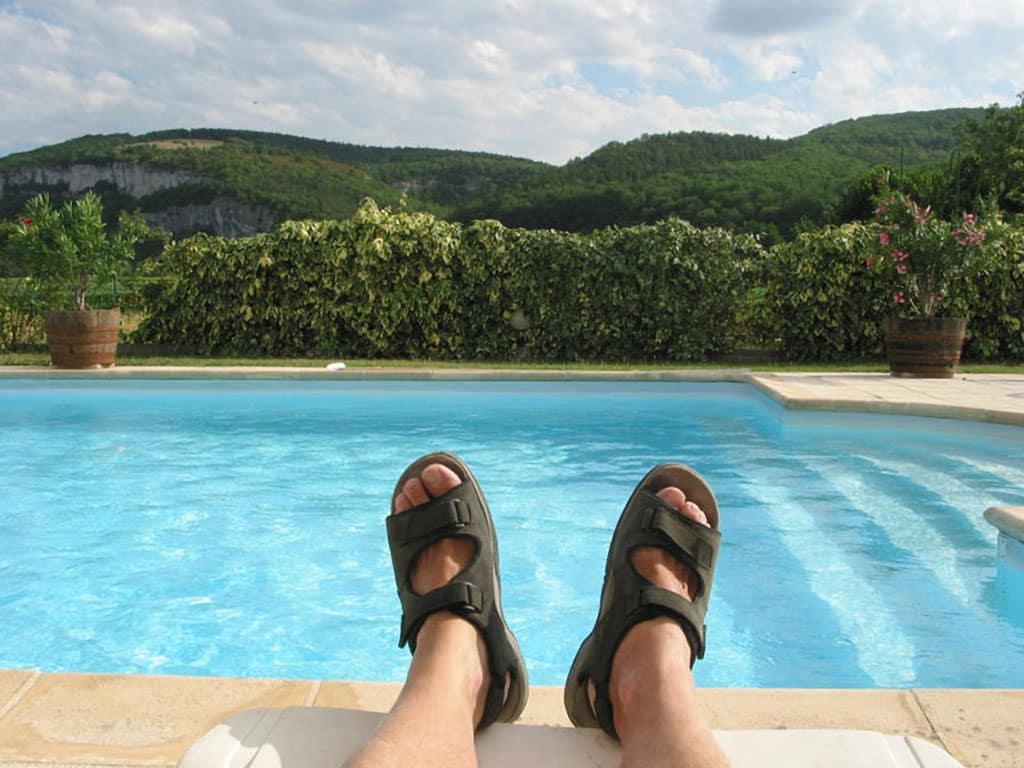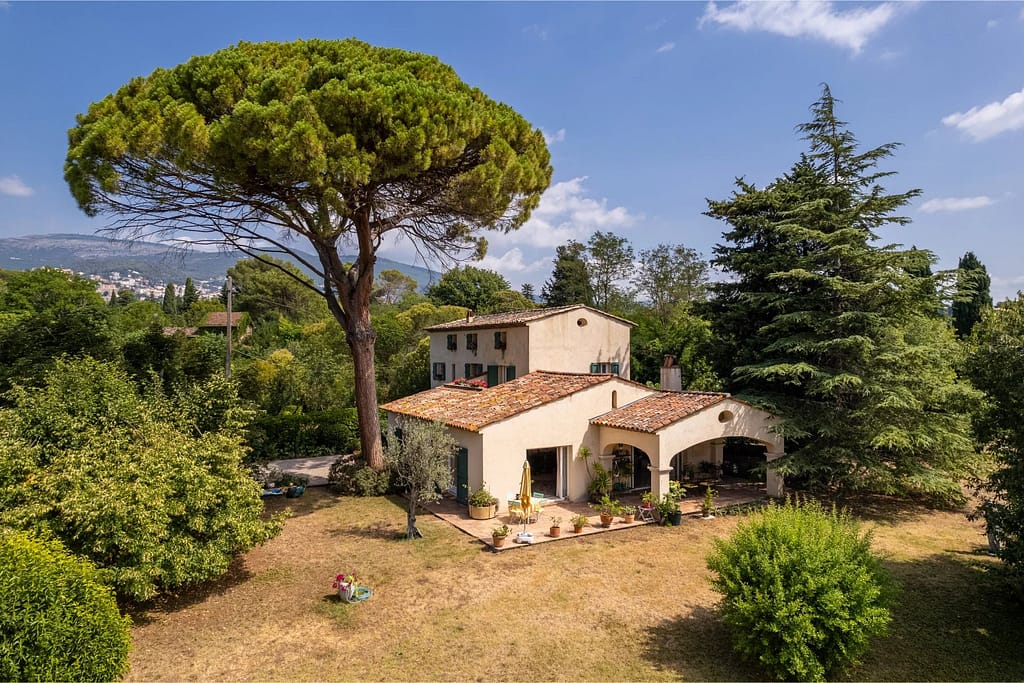While it can be argued that starting a life in France may be appealing to just about everyone, it has a particular allure for more affluent retirees. Between the slower, more relaxed pace of living and the luxury lifestyle that many areas of France offer, it’s the perfect retreat for those who are ready to move on from a life once filled with work and finally live their dream and retire to France.
Additionally, all sorts of climates can be found throughout France. If you love the change of the seasons, consider Paris, which experiences winter, spring, summer and autumn. Or, if you want a mild temperature and sun-filled days year-round, the Côte d’Azur is a prime choice. Want to hit the slopes every chance you get? A home in the French Alps may be exactly what you’re looking for during your retirement years.
From rich cultural experiences and world-renowned gastronomy to some of the most incredible homes you’ll ever see, France is a popular destination for those in their retirement years.
Table of Contents
- What Are the Post-Brexit Visa and Residency Requirements for UK Citizens Retiring in France?
- Can I Buy Property in France as a UK Citizen?
- Property Considerations for Retirees
- What Are the Legal and Financial Considerations for Affluent UK Retirees in France?
- What Are the Key Mistakes To Avoid When Retiring to France as a UK Citizen?
- Final Thoughts About Retiring to France as a UK Citizen
What Are the Post-Brexit Visa and Residency Requirements for UK Citizens Retiring in France?
In a post-Brexit world, the process of moving from the UK and becoming a French resident has changed. Now, UK retirees have to apply for a long-term visa (called a “visa de long séjour” or VLS) before they’re able to obtain a residency permit, called a “titre de séjour.”
The VLS can be obtained by applying to a UK-based French Consulate and providing the necessary documentation, including proof of finances, proof of health insurance, and a current passport. Regarding your proof of income, you need to show that you meet minimum income requirements and are financially stable.
The VLS is necessary if you’ll be staying in France longer than 90 days, and it lasts for up to one year. After that, you’ll need to apply for permanent residency. To obtain residency, you’ll need to provide additional documentation, including proof of income and proof of your French address.
The UK and France double tax treaty is another consideration. Double taxation means that an individual could be required to pay tax on the same income in two countries — in other words, they would pay tax on the same income twice. Double tax treaty agreements, however, prevent that from happening.
For those moving from the UK to France, it’s important to understand which taxes you’re liable for. It’s best to consult with a legal professional who specializses in UK-to-France relocation.
Can I Buy Property in France as a UK Citizen?
Yes, you can buy property in France as a UK citizen, as there are no restrictions on foreigners purchasing property in France. However, since you’re currently a non-resident of France, the process will have specifications for you to follow.
Overall, Brexit didn’t have a major impact on the ability of non-EU nationals to purchase property in France or other EU countries.
However, costs and the amount of paperwork necessary tend to be higher now than pre-Brexit. That doesn’t limit your ability to find and buy French property; it simply makes the process more costly and complex.
Property Considerations for Retirees
Luxury apartments and penthouses are excellent options for retirees because they come with a host of comfort amenities and concierge services. Furthermore, apartments are often close to the town centre, making it easy to access shops, restaurants and events.
Depending on what type of lifestyle the retiree is looking for, a countryside estate or villa may also be a good choice. While there’s more to take care of with this type of home than with an apartment, a modern house is relatively easy to maintain, especially if it has automated tech for tasks like watering the garden.
One type of property to stay away from is a historic chateau. While historic chateaux have plenty of appeal, they’re not a great choice for a retiree. With sprawling grounds and aging structural components, there’s a lot to care for with a chateau, and that amount of maintenance isn’t a good fit for many people of retirement age.
The type of land that the home is on should also be considered. Some people want a lot of land where they can engage in their hobbies, like tending to a vegetable garden or a small vineyard. Others will find that land requires work they’re not interested in doing, in which case an apartment or seafront villa may be a better fit.
What Are the Legal and Financial Considerations for Affluent UK Retirees in France?
Being considered a resident of France for tax purposes means you meet at least one of the following requirements:
- Your primary home is located in France.
- Your primary occupation is in France.
- A majority of your economic interests are in France.
When you live in France, there are three main taxes to understand: capital gains tax, income tax, and wealth tax.
Capital Gains Tax
Capital gains tax is imposed on the sales of equities, shares and other securities and at the moment is set at a flat 30% rate.
Income Tax
French residents are subject to income tax on any income they make unless it’s somehow excluded due to a tax treaty. Income tax has progressive rates based on how much you make and your family status, which you can learn more about here.
Wealth Tax
Wealth tax applies if your global assets exceed €1.3 million. However, if you’re liable for wealth tax, it’s calculated starting at €800,000. There are six wealth tax brackets that range from 0% to 1.5%.
UK Pension Tax for French Residents
Since you’ll probably be relying on your pension to cover at least part of your living expenses in France, it’s important to understand how your UK pension will be taxed once you’re a French resident.
Due to the double taxation treaty between the UK and France, UK pension income will be taxed in France once you become a resident — and it will no longer be taxed in the UK. There’s an exception to this when it comes to government service pensions, though, so keep that in mind if you worked in that sector.
In France, retirement salaries receive a 10% deduction up to approximately €4,300 and are then taxed on the income tax scale.
Estate Planning and Inheritance Tax in France
Estate planning is more complex in France than in the UK, so it’s essential to understand the French system so you can protect your wealth to the best of your ability.
The first thing to know is that children have primary rights to an estate — they’re prioritised over spouses. You must leave at least 50% of your assets to your children, and the percentage may be higher based on how many children you have. The leftover balance can then be left to your spouse.
If you have a UK will, French succession law will override it once you’re a French resident. However, you do have the ability to choose that your country of nationality’s laws apply rather than your country of residency’s laws. This must be lawfully directed via your will, though, or else French law will automatically apply.
Regarding succession tax, civil partners and spouses are exempt from taxes on inheritances. For other donor-beneficiary relationships, tax rates vary.
What Are the Key Mistakes To Avoid When Retiring to France as a UK Citizen?
There are common pitfalls to avoid when retiring to France from the UK, including the following:
- Not applying for the long-stay visa. After three months in France, you’ll need a long-stay visa to remain in France, and it’s a prerequisite for gaining residency.
- Assuming that your tax liability is the same as what you’re used to in the UK.
- Not declaring your UK pension in France because you think you can continue paying UK tax on in.
- Trying to navigate the process alone instead of seeking professional advice and services for financial, legal and property matters.
- Overlooking differences in lifestyle and being unprepared for life in a new culture.
- Neglecting to consider all aspects of buying a home in France, including access to healthcare and other services, transportation options, climate, the availability of amenities, and maintenance considerations for your home.
To avoid the mistakes that could seriously impact your move to France or how enjoyable your time is once you get there, consult with professionals and speak with expats who have retired in France from the UK.
Final Thoughts About Retiring to France as a UK Citizen
When moving to France from the UK after retirement, there’s a lot to consider, from finding the right home for your lifestyle to understanding the ins and outs of how French taxes will impact your wealth.
The best advice is always to work with advisors in both countries while preparing for and making the move. Having property agents, financial planners, lawyers and tax experts who can provide guidance throughout the process will minimise risks and help everything run as smoothly as possible.





